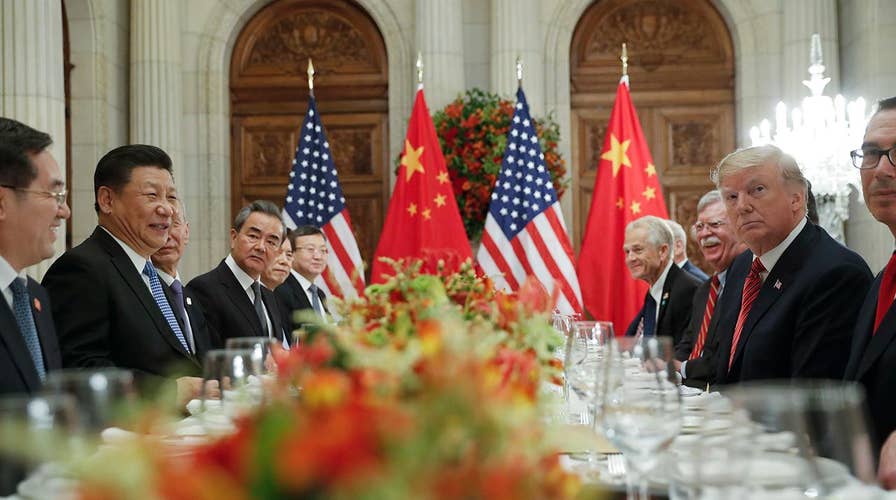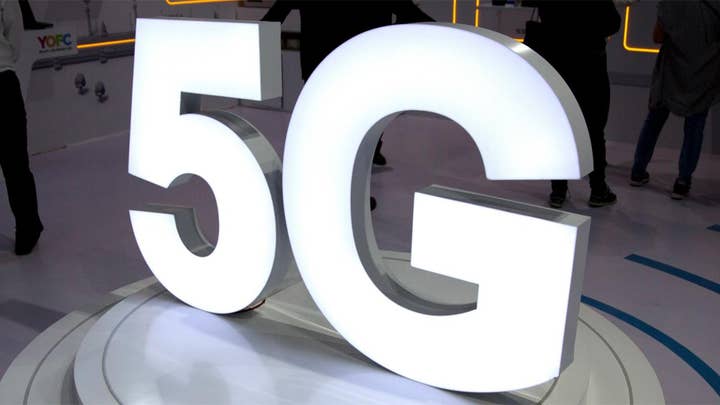China is dangling revolutionary 5G technology to the world through its giant telecommunications companies in an effort to make the communications systems of other nations – including the U.S. – dependent on China and subject to Chinese control and surveillance.
The new technology has become a 21st century Trojan horse – something that appears to be a gift but in reality can be used to attack us.
Many people aren’t familiar with 5G yet, but it is the wave of the future. The name stands for the 5th Generation of wireless communications technology. It will allow many more communications devices to transmit data at far higher speeds.
BILLS BEFORE CONGRESS ARE TOO LONG AND COMPLICATED – TIME TO SHORTEN AND SIMPLIFY LEGISLATION
The new communications technology will let us browse the Internet, upload and download videos, and use data-intensive apps and features like virtual reality much more quickly and smoothly than we can today.
New Zealand is the latest country to see China’s Trojan horse for what it really is. It has banned one of China’s leading telecom companies – Huawei – from providing 5G service there. New Zealand Prime Minister Jacinida Ardern and her government have blocked Huawei from the nation’s 5G rollout because of “serious security concerns.”
Huawei is the world’s largest supplier of integral communications components for cellphones and Internet providers. It was founded in 1987 by a former military engineer as part of a national effort to make China a leader in creating new technology.
Huawei a political star in China and works with the Communist Party and government to further China’s technology ambitions. The U.S. and other trading partners say China is violating its market-opening obligations and might be advancing based on stolen intellectual property.
Huawei passed Sweden’s LM Ericsson in 2017 to become the No. 1 global seller of network gear. The Chinese company says it supplies 45 of the top 50 global phone companies and has signed contracts with 30 carriers to test its next-generation technology.
The Chinese company’s smartphone brand, launched in 2010, passed Apple in mid-2018 as the world’s No. 2 seller behind Samsung Electronics. And it has kept growing despite weakness in the global smartphone market.
Apple’s Jan. 3 announcement of weaker-than-forecast iPhone sales jolted financial markets, but Huawei said its 2018 sales rose 30 percent to more than 200 million handsets. The Chinese company says it expects $125 billion in global revenue this year.
Headquartered on a leafy campus in Shenzhen, adjacent to Hong Kong, Huawei had China’s biggest corporate research and development budget at 89.7 billion yuan ($13 billion) in 2017 – 10 percent more than Apple Inc.’s. Its foreign customers can draw on a multibillion-dollar line of credit from the official China Development Bank.
Huawei is more important to Chinese leaders than ZTE Corp., a smaller rival that was nearly driven out of business after Washington blocked it from buying U.S. technology because the company exports to Iran and North Korea.
President Trump restored access after ZTE paid a $1 billion fine, replaced its executives and hired U.S.-picked compliance officers.
Recently Huawei’s chief financial officer was arrested in Canada on U.S. charges that she lied to banks about Huawei’s dealings with Iran.
As America demands the latest and greatest telecom technology and speed, we must be ever vigilant to make sure our 5G services supplied by foreign telecoms masquerading as American telecoms are not reliant on Chinese-supplied components in consumer products and critical communications infrastructure.
It is the duty of Congress as well as several executive branch agencies to weigh in on sales, mergers and acquisitions with regard to Chinese telecom integration, reliance and surveillance.
The lure of advancements in technology should not be given a higher priority than national security concerns and protections.
America must also work with our friends and allies like New Zealand to prevent China from penetrating critical communications within sovereign nations.
CLICK HERE TO GET THE FOX NEWS APP
China’s economic and governmental systems are very different from our own. There are no private companies in China. There is no “arm’s length” relationship with “private” telecoms and government. The Chinese government controls access, regulation, funding and governance of its telecoms and other critical industries.
America can have 5G without reliance or dependence on China – but only if our government is vigilant in preserving and protecting our interests.


